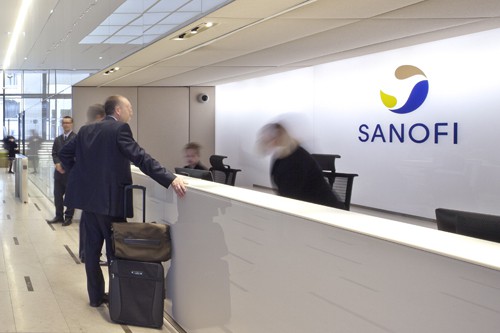
Scottish biotech and artificial intelligence specialist Exscientia has added another pharma collaborator to its portfolio, with Sanofi the latest to tap into its AI-based drug discovery engine.
Sanofi wants the Dundee University spin-off to discover and develop double-headed (bispecific) small-molecule drugs that have potential to treat metabolic diseases, with a particular emphasis on finding therapies for diabetes.
Building greater functionality into molecules – sometimes known as ‘polypharmacology’ – could help overcome the “paucity of single targets that are amenable to drug discovery” in diabetes, according to Exscientia, which will endeavour to design drugs that can address two targets in a single molecule. After initial screening and biological testing, successful candidates will be passed on to Sanofi for chemical synthesis and further development.
“This agreement highlights Exscientia’s ability to apply bispecific drug design in a comprehensive and highly productive manner,” said the biotech’s chief executive Andrew Hopkins, a chemoinformatics, chemogenomics and structural bioinformatics expert at Dundee University who is also managing director of another spin-off company – drug discovery service firm Kinetic Discovery.
“Sanofi has put together an excellent experimental backbone for this collaboration and we look forward to delivering high-value projects for the company.”
Under the terms of the deal the French pharma giant will contribute research funding, up to €250m in milestone payments and will pay royalties on any drugs that make it through to market.
The new collaboration is a boost for Exscientia, which has been operating largely under the radar since it was set up in 2012 but has quietly been building a portfolio of partners – with more expected to be announced in the coming months.
The company is also working with Evotec to find molecules that simultaneously block the adenosine 2A receptor (A2AR) and CD73 and could unlock a new pathway in cancer immunotherapy, with Japan’s Sumitomo Dainippon Pharma on psychiatric disease collaboration, and with Sunovion on undisclosed central nervous system (CNS) targets.
It claims to be the first company to automate drug design, fusing AI with “the discovery experience of seasoned drug hunters”.




